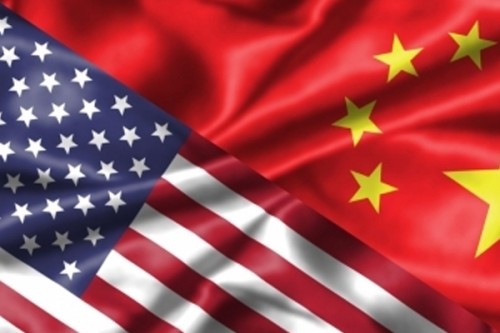America's '3 Ds' to trim economic ties with China, check its global ambitions

Washington, Sep 3 (IANS) Under President Joe Biden, the US has sought to trim economic ties with its chief competitor for global dominance, China, but it has struggled to decide how to describe it. Is it 'derisking', 'decoupling' or 'diversifying'?
The current preference is derisking, a vague term that has occurred most frequently in speeches and remarks by Biden administration officials in relation to China.
Here is the latest: “We are derisking, we're investing in America, but we are not decoupling or trying to hold down China's economy,” said Gina Raimondo, the US Commerce Secretary, during a visit to China, earlier this week.
Derisking was added to the vocabulary of the West’s relations with China by European Union President Ursula von der Leyen in May. It was not just a gentler alternative to decoupling, but more realistic as it acknowledged the impossibility of separating the Western economy from China, which is the world’s largest manufacturer of goods, especially household essentials such as TVs, computers, refrigerators, air-conditioners and kitchen appliances.
The US picket it up a month later in a major policy speech by National Security Advisor (NSA) Jake Sullivan. And derisking became the US narrative.
The next month, the US-China narrative received another tweak.
“We’re not looking to decouple from China, we’re looking to de-risk and diversify our relationship with China,” Biden said at a news conference in May.
But diversifying as the second alternative had to wait a few weeks longer.
“There is an important distinction between decoupling, on the one hand, and on the other hand, diversifying critical supply chains or taking targeted national security actions,” Janet Yellen, the US Secretary of Treasury, said during a visit to China in July.
It was an even gentler alternative to decoupling.
But it has not found much favour with the Biden administration, which has shown a preference for derisking.
“Secretary Raimondo will carry with her the message that the United States is not seeking to decouple from China, but rather to derisk, and that means protecting our national security and ensuring resilient supply chains alongside our allies and partners while we continue our economic relationship and our trade relationship,” NSA Sullivan told reporters ahead of Raimondo’s China visit.
The search for the right 'D' has not deterred the Biden administration from doing what it has always wanted to do: Curtail economic ties with China with the strategic goal of addressing challenges posed by China to America’s economic and political might and security.
The most recent of these moves came in an executive order issued in August prohibiting Americans -- firms, individuals and entities -- from investing in China in sensitive sectors.
Earlier this week, the administration prohibited Nvidia and AMD from importing GPUs to West Asian countries fearing onward passage to China.
Decoupling was a manifestation of US frustration with China during the Covid-19 disruption of supply chains borne of the complete shutdown of the Chinese economy for almost three years.
Americans became acutely aware for the first time of their dependence on Chinese manufacturers, more than the disruption caused by former President Donald Trump’s escalation of the tariff on Chinese goods.

|

|

